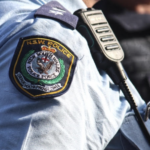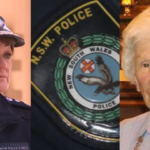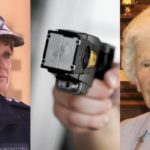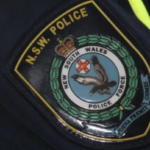Another Mentally Ill Woman Dies After Being Tasered by NSW Police Officers
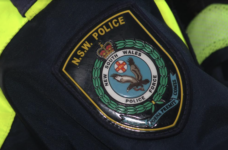
Another woman has died after New South Wales Police used “a number of tactical options, including a taser” during her arrest last week.
The woman’s family is now demanding answers.
The incident
Police were called to 47-year old Krista Kach’s apartment in Newcastle on 14 September 2023 following reports that a woman was acting erratically, including threatening people with an axe.
Police allege the woman also threatened them before barricading herself in her apartment.
Police eventually gained entry, and Ms Kach was tasered during the incident and taken to John Hunter Hospital, where she later died. A post-mortem examination will outline the cause of her death – it is yet to be completed.
In the aftermath, NSW Police Northern Command Assistant Commissioner Peter McKenna fronted media said police “deployed a range of implements including projectile bean bags and a taser.”
Family warned police about mental health issues
Mr McKenna also said that police were unaware of the woman’s mental health issues.
But this is an important fact that the family firmly disputes. The woman’s daughter says she begged for help and told police her mother was ‘not well’ and in distress because she had been told earlier in the day she would be evicted from her home.
The family says Police assured them Ms Kach would be looked after, and cared for by a hospital and qualified medical professionals.
They say they entrusted police with their mother’s care only to be delivered the news several hours later that she had died.
They heard via the radio that police had discharged weapons – it was not a fact disclosed to them by police.
Footage that Ms Kach livestreamed of the incident to an unknown audience is not publicly available, but it has been obtained by Greens MP Sue Higginson, who commented that it should be a “turning point” for the state to start addressing how best to manage situations involving people experiencing mental health episodes.
Tasering – just normal protocol?
This is the second time a vulnerable woman who has died this year – the shocking incident of the tasering of 95-year old Clare Nowland at a nursing home is still very fresh in our memories. The officer who was charged over her death is still before the courts.
But the wider community is demanding – and deserves – some answers, about the increasing use of ‘non-lethal weapons’ by police as well as their suitability as first responders to incidents involving people who are suffering a mental health crisis.
Greens MP Higginson is calling for a Parliamentary Inquiry which may eventually provide some solutions.
In the meantime, a critical incident investigation into the death of Ms Kach is now underway.
Critical incident investigations are mandatory when there has been an incident involving a NSW police officer that results in the death or serious injury of a person.
The NSW Police are responsible for the investigation of critical incidents, however, the Law Enforcement Conduct Commission (LECC) does have a monitoring programme in place to oversee the way these investigations are conducted.
For now, despite community concerns and a wide range of fairly damaging media coverage over the death of Ms Kach, NSW Police Chief Karen Webb, is characteristically, nowhere to be seen. Her ability to disappear at the critical moments appears to be a hallmark of her tenure.
But the cases are mounting, and there is definitely a need for a better way for dealing with vulnerable people in crisis, especially if there are weapons and fears for officer or bystander safety.
Todd McKenzie – shot during a schizophrenic episode
The family of Todd McKenzie, who was shot dead by police in his home in July 2019, have long been calling for a complete state-wide rollout of the PACER programme which involves Police, Ambulance officers and a specialist mental health Clinician in the Early Response to incidents involving people with a mental health issue.
However, while PACER exists in some districts, it is still not serving the entirety of New South Wales.
It is hoped that the Todd McKenzie inquest will also inform a better response than the status quo. The case is still before the NSW Coroner’s Court. The court has already heard that police officers responded in an inadequate manner, when called upon to deal with Todd during a schizophrenic episode. The court also heard the officer’s turned off their body cameras.
Mr McKenzie had locked himself in his home, a danger to no one but himself. However, when specialist police officers stormed in following a nine-hour standoff, they claim to have initially tasered Mr McKenzie, who was armed with a knife, and when that had no effect, they shot him three times in the back.
In 2020 a 30 year old mentally ill man died after officers tasered, peppered sprayed and held him on the ground in their efforts to detain him under the Mental Health Act.
Tasers can be lethal
Tasers are classified as ‘prohibited weapons under schedule 1 of the Weapons Prohibition Act 1998 (NSW),
Unauthorised possession or use of a prohibited weapon is an offence under section 7 of the Act which carries a maximum penalty of 14 years imprisonment.
And there is a good reason for this – tasers are not harmless – they can have a very serious adverse impact on someone depending on their general state of health and whether they have drugs or alcohol in their system, as well as how many times they are shocked.
Scientists have also found that the electrical shock can affect a person’s natural heart rhythms, potentially causing them to experience cardiac arrest.
Police officers do not have to have a permit for a prohibited weapon and NSW Police does have policies with regard to the use tasers. However these policies most certainly deserve more scrutiny, and accountability, particularly in light of the announcement earlier this year that NSW Police will be replacing ‘outdated’ tasers with a new model that doesn’t have an integrated camera.
Current tasers will automatically capture footage when they are discharged. The new ones will require police to manually ‘turn on’ the camera, potentially leading to less accountability than ever before.
There are also calls for police to reconsider the classification for tasers, which are generally considered to be a ‘non-lethal’ or ‘less than lethal’ weapon, particularly when what we’re seeing appears to be a disturbing trend of “shoot first”, ask questions later.




